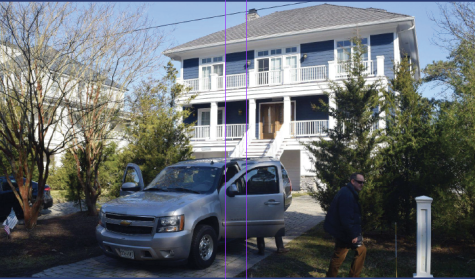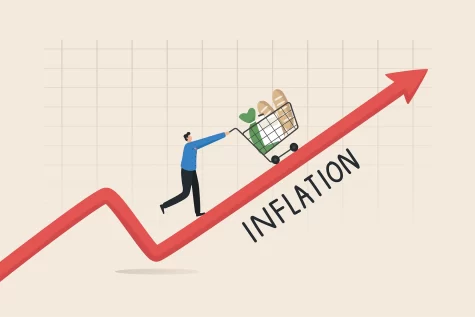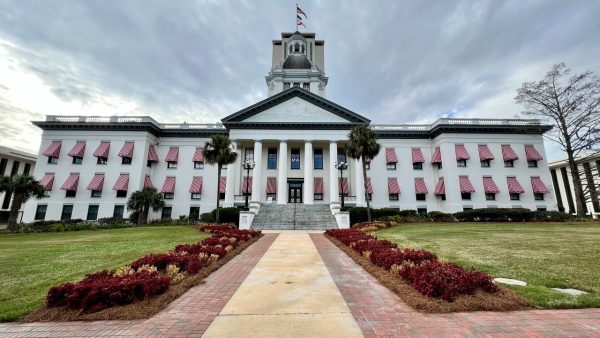Effects of Eastern Conflict Reverberate at Home
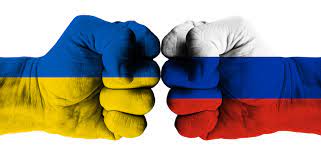
Photo courtesy of tinyurl.com/52fumhx2
Russia and Ukraine have always had conflict, depicted by the fists pointed at each other. On Feb. 24, that conflict escalated to war with Russia’s invasion of Ukraine.
Russia’s invasion of Ukraine has been the world’s top news story since its beginning in late February. A world response was quick, opposing Russia’s actions.
“Russians will see our faces, not our backs,” Ukrainian President Volodymyr Zelenskyy said prior to the Russian full-scale assault on the country on Feb. 24. For weeks before, Russia built up its military force on the border of the two countries and in Belarus, instilling a sense of worry in the Ukrainian population.
On Feb. 21, Russian President Vladimir Putin recognized the independence of two breakaway, separatist regions in eastern Ukraine: the Luhansk People’s Republic and the Donetsk People’s Republic. This action led to Ukraine’s declaration of a national state of emergency on Feb. 23. Putin employed a similar tactic prior to invading Georgia in 2008 by recognizing the independence of Abkhazia and South Ossetia.
Given Russia’s past, many in the Benjamin community were not shocked that Russia invaded Ukraine three days later.
“Knowing Putin and his war tactics and the way that he goes about setting out to do what he says he’s going to do, it’s not a huge surprise,” social studies teacher Mr. Anthony Hoy said.
Following Russia’s invasion, nations around the world, including the United States, began to impose sanctions on Russia, effectively diminishing their economy. Nevertheless, most countries, including those in the North Atlantic Treaty Organization (NATO), have been reluctant to get too involved with the conflict after Putin warned that involvement could result in “consequences you have never seen.”
However, the United States has deployed troops to eastern Europe in case Russia attacks a country with membership in NATO. Additionally, the country is granting supplies and money to the Ukrainian forces.
Ukraine has put up a better fight than most imagined, holding off Russian forces, as protests against the war persisted in Russia. The result was a meeting between the two countries on Feb. 28, but that ultimately led to no resolution.
Even more controversy came when Russia began attacking civilians and civilian buildings with their airstrikes on March 1. A day later, March 2, Russia overtook their first major Ukrainian city: Kherson, located in southern Ukraine.
About 350 miles northeast of Kherson is Kramatorsk, a city of about 150,000 residents. Among them is the family of senior Evan Liberman, who is half Ukrainian and half Russian. Liberman notes that his family is safe right now, but in recent days “has seen an uptick in the shelling, with apartment buildings not two blocks away taking damage.”
Liberman’s family plans to remain in Kramatorsk for now, largely due to the dangers of traveling to a safe border. There have been over 2,000,000 Ukrainian refugees who have fled their homes in the effort to find safety, as of March 8, with the number increasing by hundreds of thousands by the day. The war has threatened many Ukrainian civilian lives, leading to Europe’s biggest refugee crisis since World War II.
Liberman’s heritage makes the conflict quite complex to him; his personal ties and stakes to Ukraine with his family in Kramatorsk and half-Russian side are feuding, forcing him to reflect.
“In recent days, I’ve had to come to terms with my heritage since I am also half Russian. I’ve grown up speaking Russian at home. Now, Russian feels like the language of the invader, the language of the oppressor, so I’ve come to wonder in recent days whether I can still hold my Russian heritage close while throwing my weight behind the Ukrainian people. The war in Ukraine has been a cultural reckoning for me and tested my limits on how I look at my background, what it means to be the son of immigrants, and what it feels like when your two cultures are at war,” Liberman said. He notes that he feels no malice towards the Russian people, merely its government.
Liberman has received support from the School community, as he has had faculty come up to him in order to express their support for him and his family, asking how his family is doing and if they can help.
In addition to reaching out to Liberman, the School has made an effort to inform the student population about the complexities of the situation in Eastern Europe. On Feb. 28, the faculty held a lunch in the Didsbury Learning Commons for those who were anxious, concerned, or interested in the conflict. No students attended, but the faculty members there had a discussion among themselves regarding the issue. Head of Upper School Mr. Carr, one of the faculty members present and organizers of the lunch, finds it important that students are educated about the conflict.
“As informed citizens, we’ve got to be able to unravel the complexity of actions like this and understand how and why they take place, so that, ideally, we don’t get to a position like this, which is really, in my opinion, the worst possible outcome of any geopolitical issue, being war,” Mr. Carr said.
Additionally, teachers in the Social Studies Department are carving time out of their classes in order to discuss the issue. Mr. Hoy, who teaches the Cold War class, and social studies teacher Mr. Nicholas Cramer, who teaches AP Comparative Government, both have touched on the topic, as their the classes’ curriculums involve Russia. One of the causes for the conflict is the history of the region, so Mr. Hoy, while discussing the Soviet Union, has delved into the region’s history to educate the students about why Russia has interest in Ukraine. Students in the class, like senior Dylan Bernstein, have found this to enrich their knowledge on the issue.
“With what’s happening today and before everything escalated in Russia, Ukraine was one of the main topics that we talked about in class because it has to deal with the class itself. [Mr. Hoy] did a great job by presenting us with present news and talking to us about what is going on in Russia and Ukraine dating back to the Soviet Union. I’m always keeping up with the news, but it was a lot easier to talk with some facts in there. I now understand that Russia has always wanted to conquer Ukraine,” Bernstein said.
Just as the world community has united due to this crisis, the Benjamin community has come closer together to discuss the harsh realities of the situation. Unfortunately, nobody knows when and how the conflict will end; all that can be hoped for is peace as soon as possible.
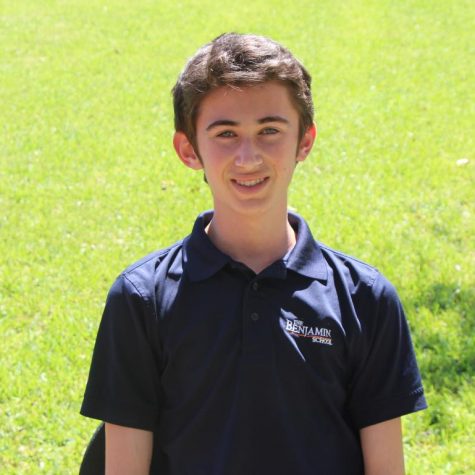
Charlie Spungin is a senior and has been a member of The Pharcyde for four years. He is the Editor-in-Chief and formerly the Copy and Sports Editor....



